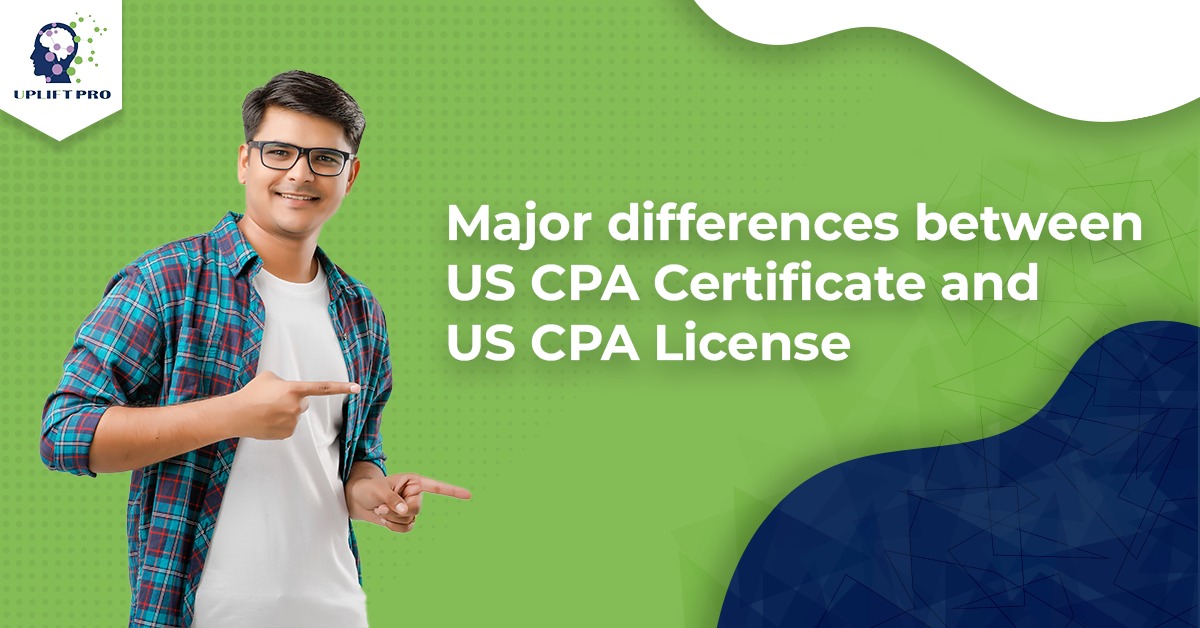Major differences between US CPA Certificate and US CPA License | Uplift Professionals
It often comes confusing when one talks about the CPA US certificate and License. Briefly speaking, the former is an acknowledgment for passing the CPA exam while the latter counts for granting permission to practice by the respective state accounting body. Although they look the same yet major differences exist. They provide different legal authorities […]
